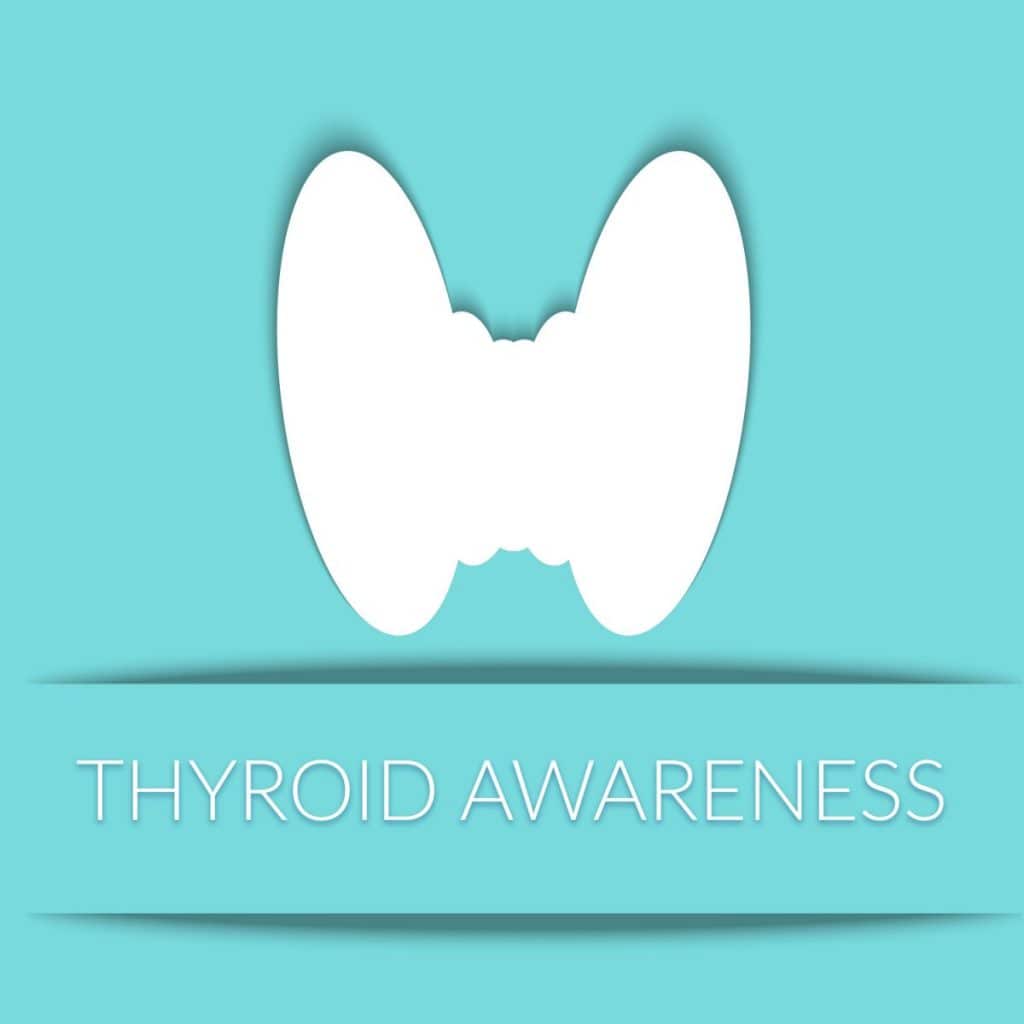The month of May is Thyroid Awareness Month. This month we are raising awareness of Thyroid disorders.
What is the Thyroid Gland?
The Thyroid Gland is a soft, small bow-shaped gland, located in the front of the neck, below the voice box or larynx (Adam’s Apple) on either side of the trachea (windpipe). It is part of the endocrine system and produces the hormones thyroxine (T4) and triiodothyronine (T3). The Thyroid Gland is controlled by the hypothalamus and pituitary gland at the base of the brain and manufactures hormones that regulate your body’s metabolism.
What are Thyroid Disorders?
Several different disorders can arise when your thyroid produces too much hormone (hyperthyroidism) or not enough (hypothyroidism). Four common disorders of the thyroid are Hashimoto’s disease, Graves’ disease, Goiter, and Thyroid nodules.
The many causes of thyroid disorders include:
- Iodine Deficiency
- Autoimmune Disease
- Viral and bacterial inflammation causing thyroiditis (subacute thyroiditis)
- Familial Disorders
- Nodules which have formed on the Thyroid Gland
- Benign and Malignant (cancer) tumours on the Thyroid Gland
Are Thyroid Disorders Common?
- Ten times more women than men worldwide will be diagnosed with some form of thyroid disorder.
- Thyroid disorders, especially hypothyroidism – or an underactive thyroid, becomes more common as we grow older.
- Statistics show 1 million Australians have an undiagnosed thyroid disorder.
Symptoms of an Unhealthy Thyroid
For more information, please see the Australian Thyroid Foundation’s website at https://thyroidfoundation.org.au/
Please visit your GP or call Medsana Medical Clinic at (07) 385204878 to test your thyroid and check your neck.

